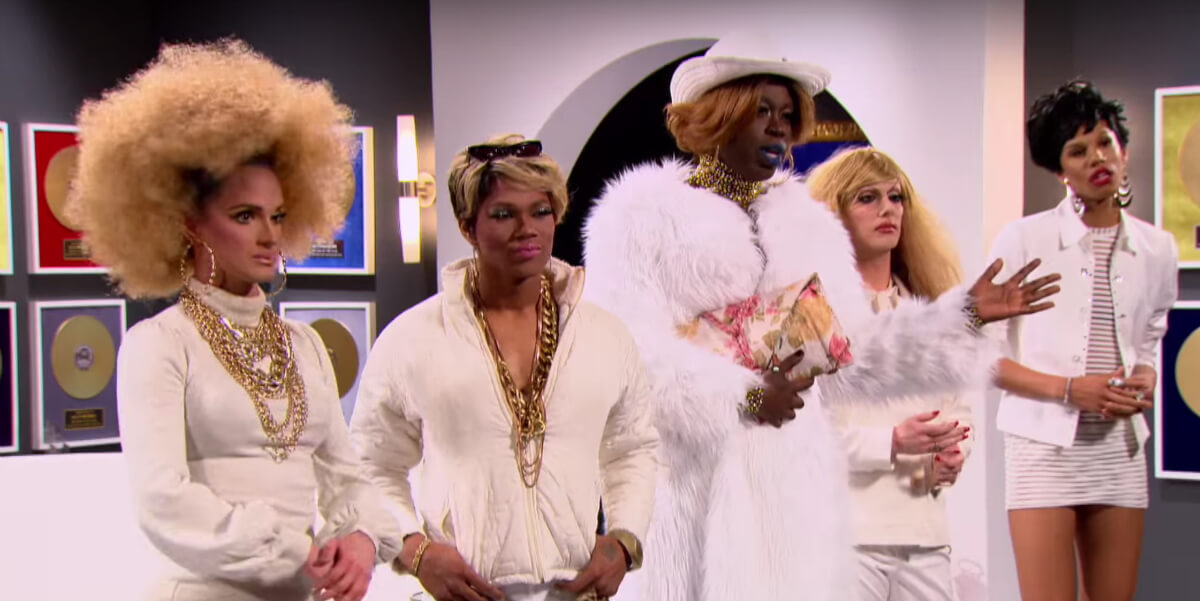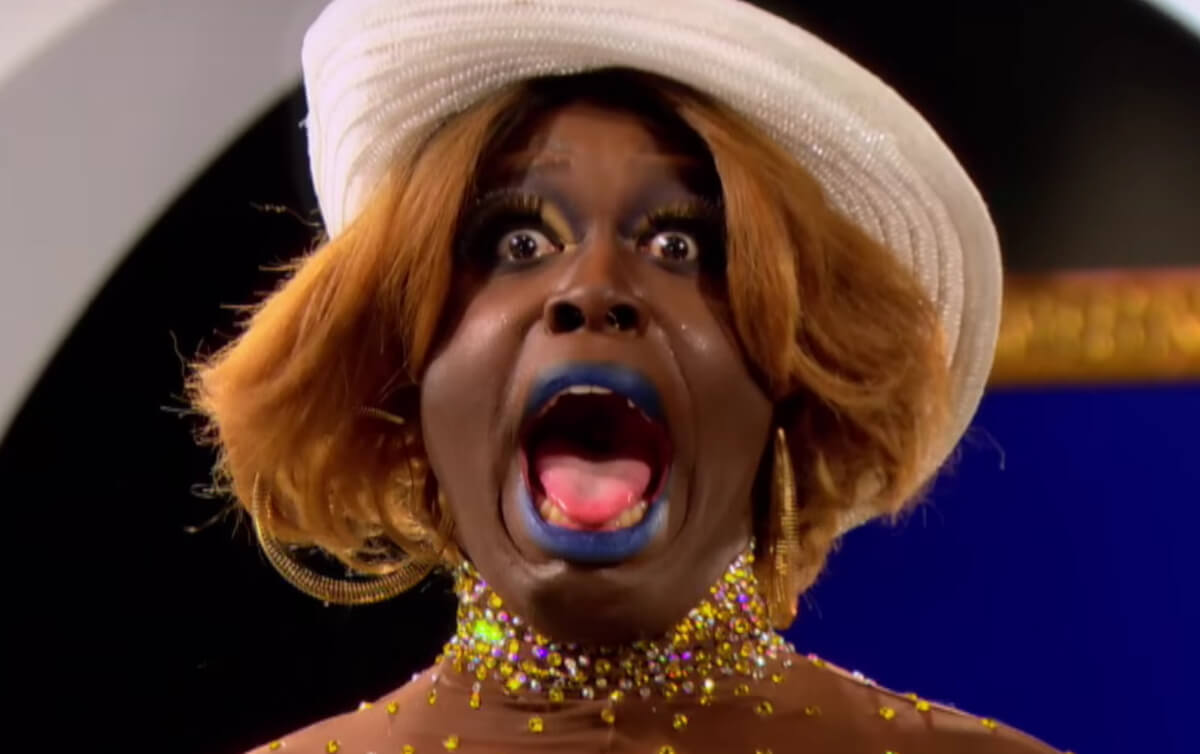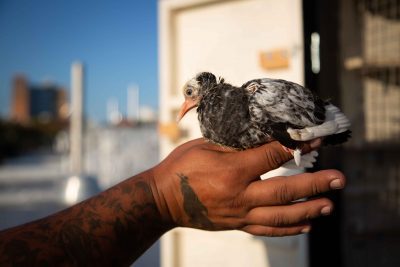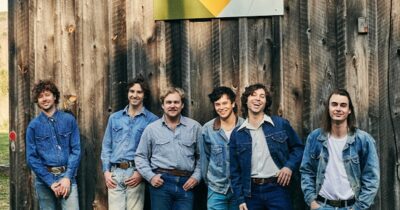Recapping Drag Race: Bob The Drag Queen Becomes Bob The Contender


RuPaul’s Drag Race is as much about the series itself as it is about the ways in which queer viewers relate to it. Or at least it is for me. That’s why I’m recapping the eighth season of Logo’s annual drag queen competition with a series of posts written based on my experiences watching each episode at a different bar in Brooklyn (and who knows, maybe even other boroughs). This week, I hit up Don Pedro, located at 90 Manhattan Ave off the Montrose L and the Lorimer JMZ.
One text. Four words. Zero chill.
“bob. the. drag. queen.”
That’s the text message I got from my friend Tommy exactly 49 minutes after Monday night’s episode of RuPaul’s Drag Race finished airing. I don’t know where he caught the episode, but I watched it at GIRL DON’T GAG, Don Pedro’s new weekly event series hosted by Brooklyn queen and Bushwig co-founder Horrorchata and BCALLA designer Brad Callahan. The evening was also sponsored by House of La Rue, a clubwear boutique slash candy-colored wig shop that recently opened for business at 106 Thames St off the Morgan stop.
The night kicked off with a two-room Drag Race viewing party, dipped into custom BCALLA raffles (I lost, twice), and closed with a room full of gays raining singles down on drag performers Hannah Lou, Joshua Hurt, and Horrorchata herself. The event’s post-Drag Race set list wasn’t quite as extensive as the viewing parties I attended at Flowers For All Occasions’ or Metropolitan’s, but I also got home by, like, 11:30 p.m. So if you’ve got to wake up early for work Tuesday morning, this might be the full Drag Race viewing party experience for you.


This week’s episode of Drag Race saw Bob the Drag Queen take home her very first win after weeks of repeatedly just missing the mark. Cynthia Lee Fontaine sashayed away following a lip synch to Faith Evans’ “Mesmerized” against Robbie Turner (on roller skates!).
I, like many others, was totally enamored by Cynthia and her tireless plight to “legalize sex.” I also shared my friend Tommy’s all lowercase awe for Bob, who brilliantly embodied an exaggerated take on Taraji P. Henson’s Cookie Lyons during a challenge that saw the queens split off into two groups in order to act out scenes satirizing Lee Daniels’ Empire. Contestants Chi Chi DeVayne, Naomi Smalls, and Thorgy Thor—whom I caught hosting Drag Race last week at Metropolitan—also shone bright during the maxi challenge, but what Bob delivered bordered on blinding.
And I wasn’t the only viewer who thought so.
“Bob was the best this week, so he deserved to win,” Jeffrey Rodriguez told me.
“Bob is hitting it out of the park for me,” GIRL DON’T GAG performer Joshua Hurt concurred. “I was really rooting for Bob, so I was really happy that Bob was able to win.”
Kim Chi and Naomi Smalls gobbled up the majority of the Don Pedro audience’s limited favor, but I did manage to find, perhaps, the lone Robbie Turner stan in Brooklyn.
“I like Robbie Turner,” John Lisle said. “People are really polarized about her. They either hate her, or they enjoy her, and I enjoy her. I thought it was cool to see her break out of that cycle of psyching herself, and, now that she’s lip-synched, she will only go up and up.”


But let’s back up to the episode’s Empire maxi challenge… How do I put this without resting on “problematic”?
Drag Race often walks a very narrow tightrope of racial and sexual identity play that, depending on who’s walking it, can easily devolve into a three-ring circus of unfunny, tired tropes and stereotypes. It’s the difference between Bob the Drag Queen’s off-show “Slave 4 U” number and Manila Luzon’s Mr. Yunioshi mess from season three; one smartly deconstructs the way America’s legacy of racism is (and is not) acknowledged in our culture, and the other is Manila Luzon’s Mr. Yunioshi mess from season three. Asked to channel the lead cast of the hit Fox series Empire, contestants like Derrick Barry, Kim Chi, and Naysha Lopez—who returned this week after being rightfully eliminated during episode one—served broadly racialized characterizations that evoked reductive, trope-laden ideas of what blackness looks and sounds like. Do better, gays!
You might also like 




















